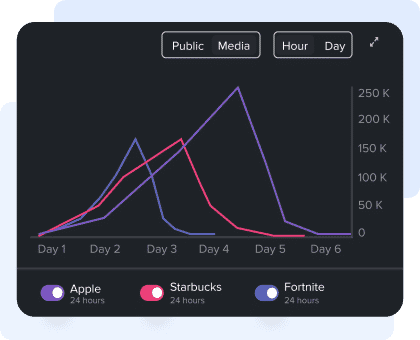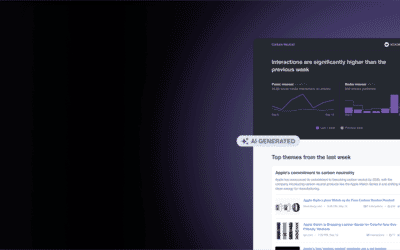Fans of soccer across the world were left dumbfounded when on Sunday, April 18th, 12 of the biggest European soccer teams joined together to form the “European Super League.” The “Founding Clubs” that attempted to band together included AC Milan, Arsenal, Atletico Madrid, Chelsea, Barcelona, Inter Milan, Juventus, Liverpool, Manchester City, Manchester United, Real Madrid and Tottenham Hotspur.
The Super League was pitched as a midweek European club competition, separate from UEFA’s Champions League and Europa League. 20 clubs were expected to take part, but the initial “Founding Clubs” would be permanent fixtures in the tournament, along with three others who had yet to be confirmed.
Controversy arose as many fans saw this move by the clubs as a blatant power grab for the owners. Soccer has always had connections with the working class, especially in Europe. So, what happens when the richest, most powerful teams in Europe take it upon themselves to create a league where, theoretically, they can’t lose?
The people protest.
This move, one that was supposed to “save the sport,” backfired spectacularly on all 12 teams, becoming a PR and marketing disaster as public outcry opposing the league poured in both digitally and physically.
Let’s take a look at the public reaction to the news, as well as which outlets were driving the most engagement.
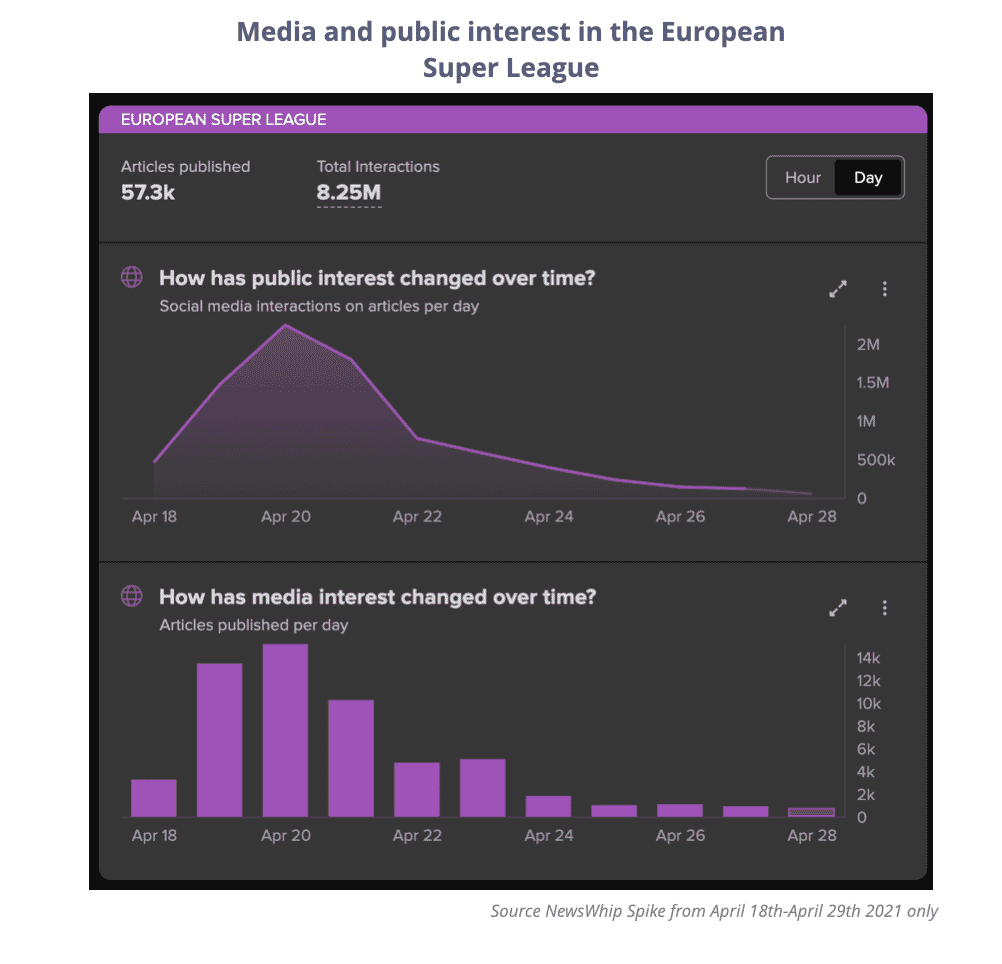
With almost 10 million engagements to English language content in one week and nearly 60k articles written, this has been major news, and has turned the world of soccer upside down.
Public and media interest stayed consistent throughout the week, though it seems public interest didn’t really explode until England’s “big six” hastily backed out of the competition on the 20th, following seemingly boundless condemnation.
Indignation wasn’t limited to just fans of the sport, but commentators, coaches, and current players themselves. Famed English commentator Gary Neville went viral for his rant on what he termed the “disgusting” behavior by these clubs.
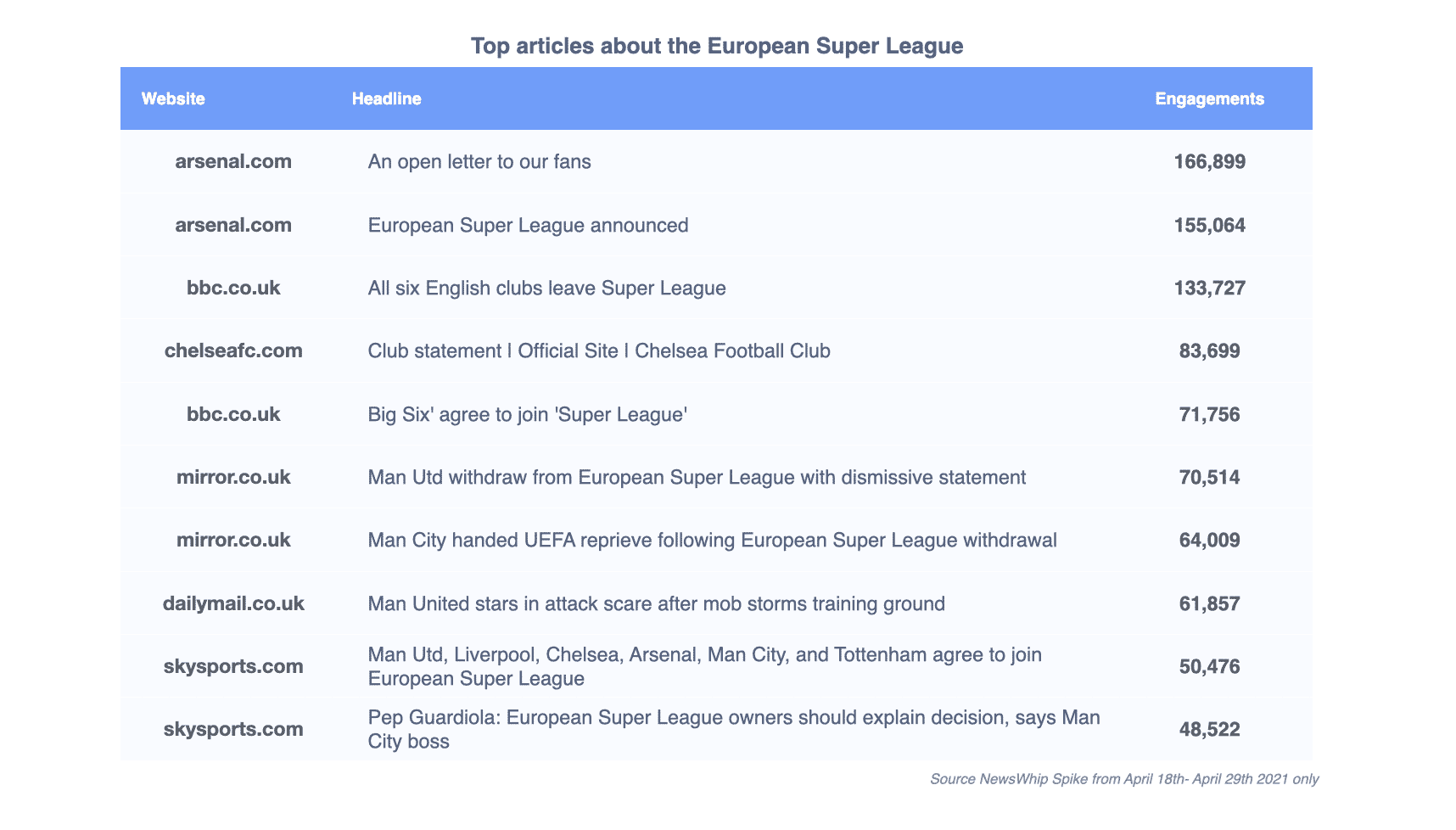
The top articles about the European Super League
The top article on the Super League was an apologetic open letter to the fans from London club, Arsenal, which had 166.9k interactions. Their initial article announcing their involvement in the league was met with extreme displeasure, prompting supporters to protest outside of the stadium and call for their owner to step down. After an intense backlash from fans, the participating clubs were forced to evaluate their actions and listen to the criticisms from their supporters. Though not every club involved has decided to abandon the league entirely, those who have backed out issued (often ill-received) apologies.
Another English club, Chelsea F.C, saw 83.6k engagements on their apology, charting at the fourth most engaged article.
Successful articles focused on UEFA granting Manchester City a reprieve because of their withdrawal from the Super League, a mob of fans storming Manchester United’s training grounds after the Super League announcement, and Manchester City manager Pep Guardiola demanding answers from each club on their decision to join.
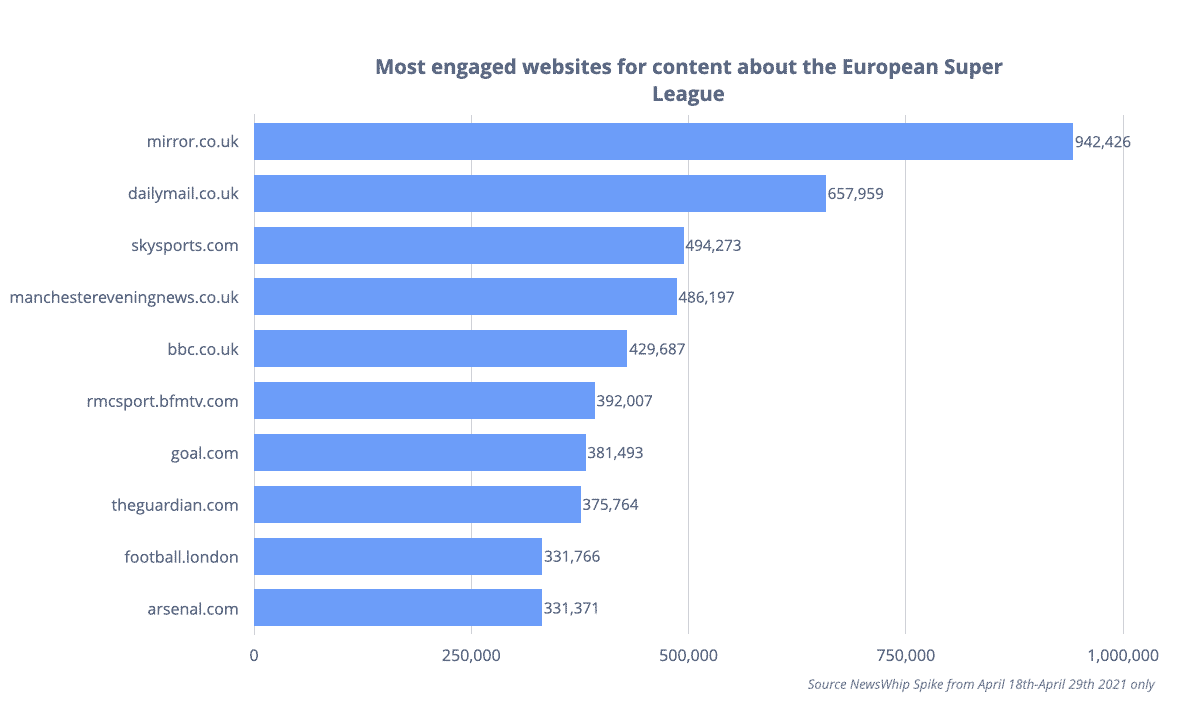
The top publishers
The UK’s Daily Mirror was by far the most dominant publisher on the matter, racking up 942k engagements within the last week. The Daily Mail and Sky Sports followed behind with 657.9k and 494.2k engagements respectively.
The BBC and The Guardian also made the list, but the remaining five spots were occupied by either regional or sport-specific publications. Arsenal’s website pushed its way into the top 10, thanks to the two statements the club made.
Angry Facebook reactions to the announcement
Facebook reactions were a key indicator in gauging how the public felt about this announcement. The top Facebook post came from Real Madrid, where their announcement of the Super League saw 261k engagements.
Of the possible reactions that could be given, the “angry” reaction came in first with 58.5k. Of users using the “love” reaction, there were only 26.7k. The second most interacted with Facebook post comes from Manchester United, but opposite from Real Madrid, it’s their announcement of withdrawing from the league. This post saw 35.2k “love” reactions in comparison to only 464 “angry.” The chart below shows the number of Angry reactions to Facebook posts about the Super League in English (Real Madrid’s was in both English and Spanish so is not included here.)
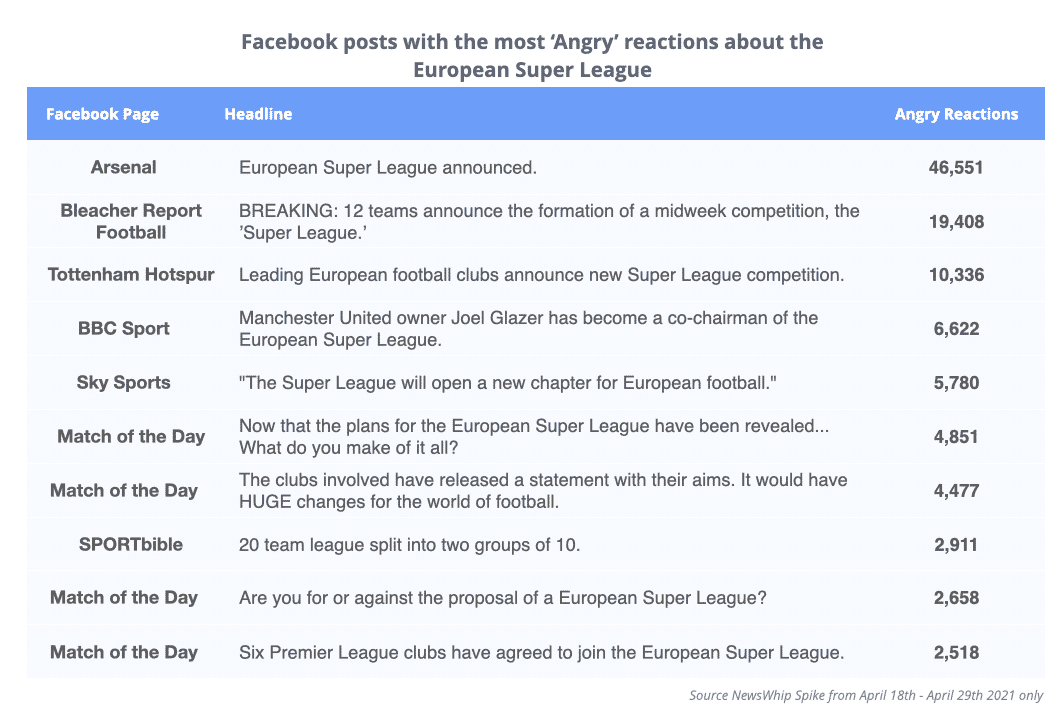
Bleacher Report posted this meme which reached 195.5k interactions with 27.6k “love” reactions, proving that soccer fans across the world were united in their contempt for the league. Their original post that broke the news of the formation of the league was met with 126.9k total interactions, and 19.3k “angry” reactions.
Across the board, it’s obvious that whatever support the Super League did have, it was in the minority. Many comments mentioned the clubs involved being greedy, ruining the sport, and treating them as customers, not fans.
The European Super League PR Crisis
At the end of the day, this decision quickly went from being the “future of football” to a massive public relations crisis based on avarice and power. The disconnect created between fan and club from this decision has altered any trust supporters once had in these organizations.
The Football Supporter’s Association, an organization that represents soccer fans in both England and Wales, released a scathing statement that, “The motivation behind this so-called superleague is not furthering sporting merit or nurturing the world’s game – it is motivated by nothing but cynical greed.”
Manchester City manager Pep Guardiola has been outwardly critical, stating, “it’s not a sport if you can’t lose,” while Liverpool captain Jordan Henderson called a meeting between every Premier League team leader to discuss a proper player response.
From the data it is obvious that the plans lost the trust of their fans, players, and management, and it is now clear the only way to restore their reputations is to begin to rebuild that trust, and focus on the game first, not the money.
If you’re interested in doing this type of analysis yourself, check out NewsWhip’s product suite.



